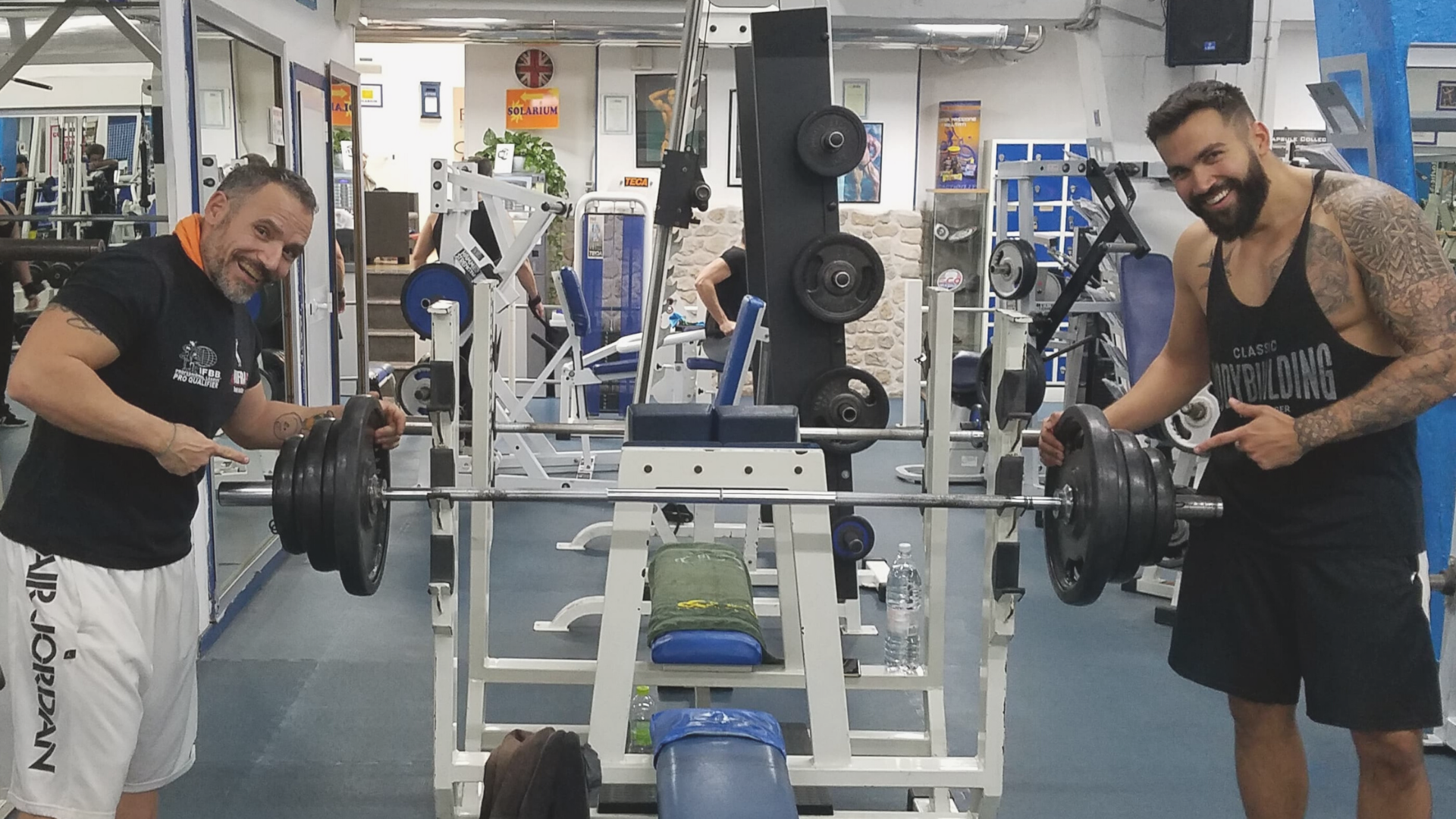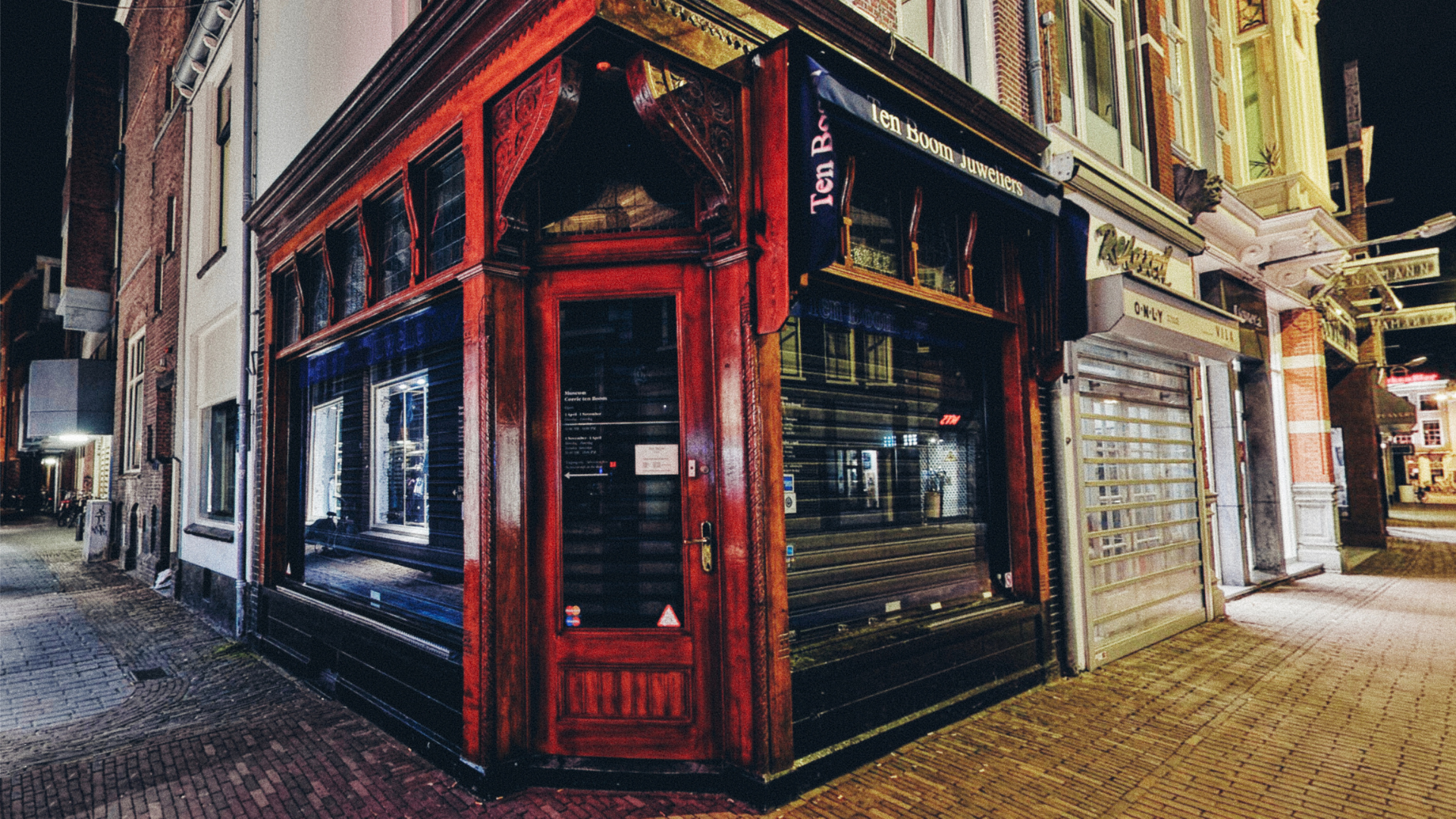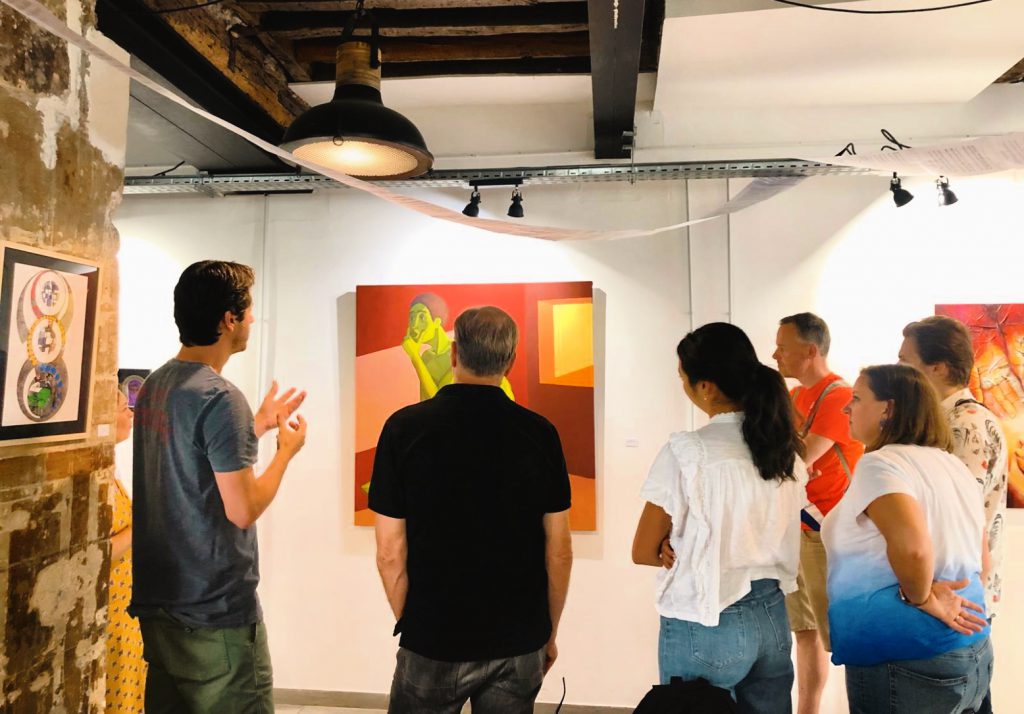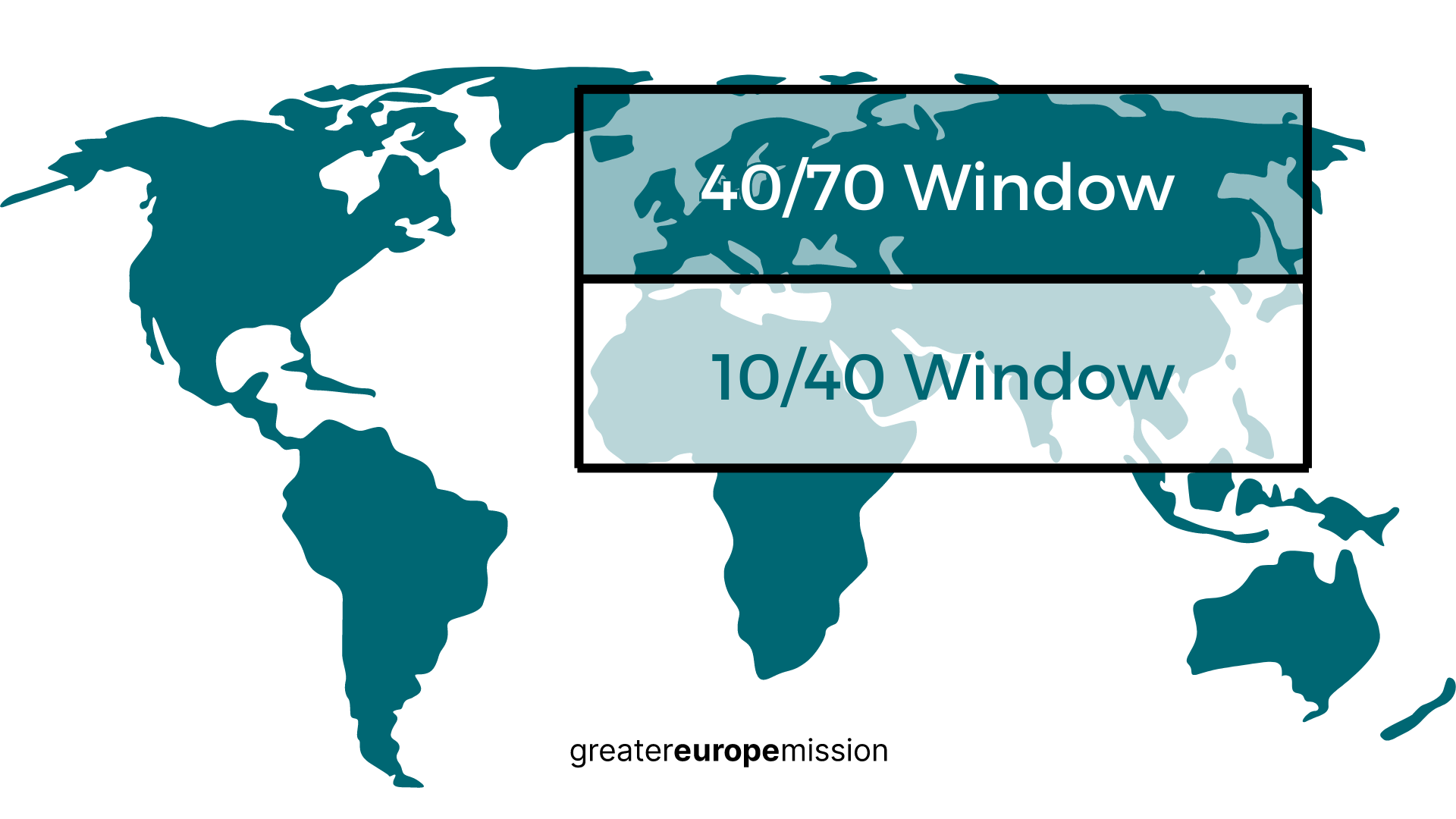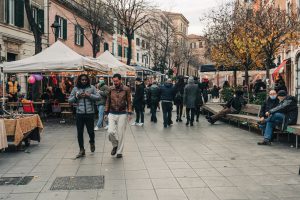Prayers are vital to the longevity and influence of missionaries in the places they’re sent. Though they may carry impressive knowledge or have an inspiring willingness to serve, their own human strength isn’t always going to be enough—they need help. Thankfully, we serve an all-powerful God who is faithful to intervene in ways beyond our own limitations.
Though not everyone will call themselves an intercessor, as believers, we are all called to pray. Why not press in closer to God and support a global worker through intentional prayer? Why not choose one month this year to devote to serving a worker in a way that is powerful and effective?
If you’re up for the task of committing a month to prayer, consider following our guide to lead you. Each prayer can be offered on behalf of a specific worker or the mission field in general. If you are personally connected to a global worker, we encourage you to reach out and ask them if they have any specific prayer needs. Incorporate those into your month of prayer and let them know you’re lifting them up.
Let’s jump in expectantly, knowing that He is capable of answering each and every one of our prayers!
I am the vine; you are the branches. If you remain in me and I in you, you will bear much fruit; apart from me you can do nothing.
Week One
Focus: The Worker’s Relationship with God
Day 1: Take a moment to lift the global worker up in prayer. Pray that they may be confident in God’s Word, knowing it to be not only trustworthy and reliable, but living!
“All Scripture is God-breathed and is useful for teaching, rebuking, correcting and training in righteousness, so that the servant of God may be thoroughly equipped for every good work.” 2 Timothy 3:16-17
Day 2: Pray today that the worker would be filled with God’s Spirit—a vital requirement for being effective on the mission field.
“But the Advocate, the Holy Spirit, whom the Father will send in my name, will teach you all things and will remind you of everything I have said to you.” John 14:26
“So I say, walk by the Spirit, and you will not gratify the desires of the flesh. For the flesh desires what is contrary to the Spirit, and the Spirit what is contrary to the flesh. They are in conflict with each other, so that you are not to do whatever you want.But if you are led by the Spirit, you are not under the law… But the fruit of the Spirit is love, joy, peace, forbearance, kindness, goodness, faithfulness, gentleness and self-control. Against such things there is no law.” Galatians 5:16-18, 22-23
Day 3: Let’s pray that the worker will continue growing in their faith, becoming fully mature in Christ.
“Anyone who lives on milk, being still an infant, is not acquainted with the teaching about righteousness. But solid food is for the mature, who by constant use have trained themselves to distinguish good from evil.” Hebrews 5:13-14
Day 4: Just as we all need rest, pray especially for the spiritual rest of the worker today.
“Come to me, all you who are weary and burdened, and I will give you rest.” Matthew 11:28
Day 5: Sometimes it’s hard to be obedient when the Lord asks you to do something you’re uncomfortable doing. Pray today that the worker would be obedient, that it may lead to the salvation of others and more glory to God.
“For just as through the disobedience of the one man the many were made sinners, so also through the obedience of the one man the many will be made righteous.” Romans 5:19
Day 6: Pray today for victory for the worker when experiencing spiritual warfare.
“For though we live in the world, we do not wage war as the world does.The weapons we fight with are not the weapons of the world. On the contrary, they have divine power to demolish strongholds.We demolish arguments and every pretension that sets itself up against the knowledge of God, and we take captive every thought to make it obedient to Christ.” 2 Corinthians 10:3-5
Day 7: Pray that the worker will hold firm, continually knowing and remembering their identity in God.
“For we are his workmanship, created in Christ Jesus for good works, which God prepared beforehand, that we should walk in them.” Ephesians 2:10
Week Two
Focus: The Worker’s Country of Service
Day 8: Pray for the protection of the sovereignty of the country.
“And I will give peace in the land, and you shall lie down, and none shall make you afraid: and I will rid evil animals out of the land, neither shall the sword go through your land.” Leviticus 26:6
Day 9: Pray for the country’s leader(s) to be responsible and wise.
“Happy is the land whose king is a noble leader and whose leaders feast at the proper time to gain strength for their work, not to get drunk.” Ecclesiastes 10:16-17
Day 10: Pray for blessings over the land.
“I will make them and the places surrounding my hill a blessing. I will send down showers in season; there will be showers of blessing. The trees will yield their fruit, and the ground will yield its crops; the people will be secure in their land. They will know that I am the Lord, when I break the bars of their yoke and rescue them from the hands of those who enslaved them.” Ezekiel 34:26-27
Day 11: Many people have prayed prayers over the land that the worker is serving in. Pray that those prayers will be answered.
“If my people, who are called by my name, will humble themselves and pray and seek my face and turn from their wicked ways, then I will hear from heaven, and I will forgive their sin and will heal their land.” 2 Chronicles 7:14
Day 12: Pray for peace among the residents of the country.
“Let us therefore make every effort to do what leads to peace and to mutual edification.” Romans 14:19
Day 13: Pray for provision for the people—that it may be a prosperous nation.
“All creatures look to you to give them their food at the proper time. When you give it to them, they gather it up; when you open your hand, they are satisfied with good things.” Psalm 104:27-28
Day 14: Pray that there would be revival and a spiritual awakening across the nation.
“Restore us, Lord God Almighty; make your face shine on us, that we may be saved.” Psalm 80:19
Week Three
Focus: The Worker’s Wellbeing
Day 15: Pray for the worker as they continue learning the country’s language and culture. Pray they would adjust well and not be stressed.
“Do not be anxious about anything, but in every situation, by prayer and petition, with thanksgiving, present your requests to God. And the peace of God, which transcends all understanding, will guard your hearts and your minds in Christ Jesus.” Philippians 4:6-7
Day 16: Pray that the worker would collaborate well, and not quarrel, with the other Christians in their serving country.
“But if we walk in the light, as he is in the light, we have fellowship with one another, and the blood of Jesus, his Son, purifies us from all sin.” 1 John 1:7
Day 17: Pray that even when things get hard, they will still find joy.
“In all this you greatly rejoice, though now for a little while you may have had to suffer grief in all kinds of trials. These have come so that the proven genuineness of your faith—of greater worth than gold, which perishes even though refined by fire—may result in praise, glory and honor when Jesus Christ is revealed.” 1 Peter 1:6-7
Day 18: Pray for Christ-like humility to characterize the worker.
“Humble yourselves, therefore, under God’s mighty hand, that he may lift you up in due time.” 1 Peter 5:6
Day 19: Pray for the worker’s financial provision.
“And God is able to bless you abundantly, so that in all things at all times, having all that you need, you will abound in every good work.” 2 Corinthians 9:8
Day 20: Pray for the worker’s physical health. If you know they need healing, pray for healing; otherwise, pray that the worker remains healthy.
“Beloved, I pray that in all respects you may prosper and be in good health, just as your soul prospers.” 3 John 1:2 NASB
Day 21: Pray for the worker’s mental health. Christian workers are not exempt from depression, anxiety, and other mental hardships. Pray for healing where it’s needed, and for their faith to remain firm in all circumstances.
“Do not be anxious about anything, but in everything by prayer and pleading with thanksgiving let your requests be made known to God.And the peace of God, which surpasses all comprehension, will guard your hearts and minds in Christ Jesus.” Philippians 4:6-7
Week Four
Focus: The Worker in Action
Day 22: Pray for unity and effectiveness among their team.
“Now I urge you, brothers and sisters, by the name of our Lord Jesus Christ, that you all agree and that there be no divisions among you, but that you be made complete in the same mind and in the same judgment.” 1 Corinthians 1:10
Day 23: Pray that God would use the worker, and those they are connected with, to plant and multiply churches successfully.
“…Be strong and courageous, and do the work. Do not be afraid or discouraged, for the Lord God, my God, is with you. He will not fail you or forsake you until all the work for the service of the temple of the Lord is finished.” 1 Chronicles 28:20
Day 24: Pray that the Gospel message will be clear through them.
“And pray for us, too, that God may open a door for our message, so that we may proclaim the mystery of Christ, for which I am in chains. Pray that I may proclaim it clearly, as I should.” Colossians 4:3-4
Day 25: Pray that God will open the hearts of the people in that nation.
“One of those listening was a woman from the city of Thyatira named Lydia, a dealer in purple cloth. She was a worshiper of God. The Lord opened her heart to respond to Paul’s message.” Acts 16:14
Day 26: Pray that the worker would have perseverance to continue the good work.
“Seek the Lord and His strength; Seek His face continually.” 1 Chronicles 16:11 NASB
“Blessed is a man who perseveres under trial; for once he has been approved, he will receive the crown of life which the Lord has promised to those who love Him.” James 1:12 NASB
Day 27: Pray that the worker would successfully make disciples. Pray for a multiplication of disciples across the worker’s serving country!
“Go, therefore, and make disciples of all the nations, baptizing them in the name of the Father and the Son and the Holy Spirit.” Matthew 28:19
Day 28: Pray that God reveal Himself through the worker with signs and wonders.
“So Paul and Barnabas spent considerable time there, speaking boldly for the Lord, who confirmed the message of his grace by enabling them to perform signs and wonders.” Acts 14:3
Thank you for your commitment in pursuing God’s Kingdom here on earth! We hope that spending a month in prayer has brought you closer to God and has stirred more passion in what He’s doing through missions.
Want to join in prayer but would rather have a printable version of this prayer calendar?
Click below for the PDF:
Written by:
Leanne Monge Barrera
Leanne Monge Barrera is currently serving in central Canada as a storyteller and social media content creator with GEM Canada. She also serves at home, homeschooling her four children.

